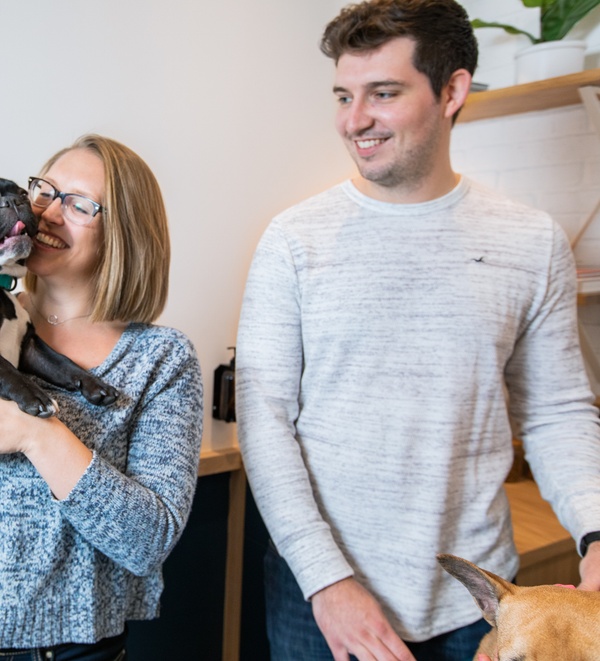
Neutering Your Pet: What to Expect
Wondering whether your dog or cat should be neutered? It’s best to talk to your veterinarian directly regarding your pet’s individual needs — but in the meantime, here’s some information about what to expect.
Pre-surgical Exam & Bloodwork
Prior to any surgery, it’s important for you to get your dog or cat examined. Here are a few things we'll check out during your pet's physical:
- Heart and lungs
- Abdomen
- Gum color
- Body temperature
- Skin health, especially near the site where the spay incision will be performed
- Eyes, ears, nose, and throat
In addition to a physical exam, routine bloodwork may be recommended. The blood panel will typically check:
- Function of major internal organs such as the liver and kidneys, which helps us choose the correct drugs for your pet's surgery and makes sure they don’t have any underlying conditions.
- Platelet function, which means that your pet can adequately clot their blood.
- Immune function to ensure your pet does not have an increased risk of infection.
- Red blood cell count to make sure your pet is not anemic.
INQUIRE ABOUT NEUTERING YOUR PET HERE
Preparing for a Neuter
We'll provide you with specific instruction leading up to your pet's surgery, but we'll likely ask that you fast your pet the night before their surgery.
You’ll bring your pet to the clinic in the morning, and pick them up later in the day when they’re fully awake. Don’t worry, your fur baby is in good hands with people who love pets!
During the Procedure
A neuter is performed under general anesthesia, which is delivered to your pet through a breathing tube along with oxygen. This allows the procedure to be done safely: Your pet won't be able to make any sudden movements and this will reduce fear and stress. Your pet is also given injectable pain control before the start of the procedure. In other words, your pal will sleep comfortably through the whole thing.
During the neuter, we take several measures to ensure your furry friend’s safety: A dedicated veterinary nurse monitors their heart rate, breathing rate, temperature, blood pressure, gum color, reflexes, and more throughout the surgery.
Additionally, if your pet is not yet microchipped, this is a great opportunity to implant one. A microchip is a permanent form of identification, which will be registered to you, just in case you and your furry friend ever get separated.
After the Surgery
Your pup or kitty will probably feel tired for the next 12-24 hours as the anesthetic drugs work their way out of the system. So, be sure to give your pet a quiet, calm place to rest, away from children and other pets. Avoid stairs and try to keep them from jumping, as they may be more prone to falling during this time.
You’ll receive specific instructions from your vet for what to do at home. But, here’s a general overview of what to expect…
- You’ll receive medications to give at home. Be sure to follow all directions, to prevent pain and infection.
- Use an e-collar. This prevents your pet from licking the site, which could cause irritation, infection, or even ripped stitches (which can require an emergency vet visit).
- Limit their activity for 10 days. This will prevent bleeding and allow for better healing.
- Check the incision site daily, and monitor your pal for any signs that they’re not feeling well (you’ll receive specific instructions after the spay so you know what to look for).
- Your veterinarian may also instruct you to place a cold pack on the incision site a few times over the first 24 hours after surgery
Fortunately, complications and problems are rare, but it's still important to monitor your pal after their neuter. More than likely, your pup or kitty will be full of energy soon after their surgery, and the hardest part of recovery will be encouraging them to rest.
After the recovery period, your little one will be back to all their normal activities, and will be set up for a lifetime of health benefits and spending quality time with you.
Learn more about neutering your pet at Bond Vet here.